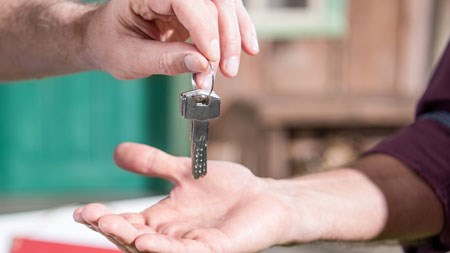It’s easy to get caught up in the moment and make mistakes when buying a home. No surprises there - there’s lots to do and lots to think about as well as the stress of making a larger than normal purchase. Fortunately, you’re not alone, and the good news is you can learn from others’ mistakes.
1. Don’t forget to put everything in writing
Everything to do with the property needs to be reduced in writing. This includes the date of occupation and occupational rent, what fixtures the current owners will be removing from the house and what they will be leaving behind.
Answer: Ensure that the offer to purchase document contains all relevant information.Once signed, it becomes a legally binding document.
2. Don’t break the bank.
Have you ever noticed that it’s only houses that you can’t really afford that truly appeal? We’ve all been there. You’ve looked at a number of houses and there’s something not quite right with all of them and then…you find it, the perfect home. The only problem is that it’s priced at more than you wanted to pay and if you’re really honest with yourself, more than you can comfortably afford. You start negotiating with yourself. I don’t need to spend so much on holidays, I can stop eating out, I’ll stop drinking, smoking, eating, heck, you’ll convince yourself that you can stop/cut out just about anything in order to justify to yourself why you can actually afford the property. The sad, bad news is that the novelty of owning the ‘perfect home’ is going to wear off pretty quickly if you have to make huge sacrifices to afford to live there.
The answer: The easiest way is to not allow temptation to get in the way by not viewing houses you know you can’t really afford. In other words, set a budget and stick to it. Private Property's affordability calculator will help you set a budget.
3. Calculate the true cost of owning your own home
There’s more to life than bond payments and there’s far more involved than simply replacing rental payments with a bond payment. You will need to factor in things such as rates, inflated utility bills (this is often a problem for those who move from an apartment to a freestanding home), insurance, as well as additional money for maintenance.
The answer: plan ahead and work within a strict budget.
4. Don’t incur additional debt
Just because you’ve moved into your brand-new home, doesn’t mean you have to have a brand new everything else. While it may be true that your ageing, somewhat tatty lounge suite looks out of place or your kitchen appliances aren’t the right colour (read white, not stainless steel) this doesn’t mean you should throw caution to the wind and set out to replace everything immediately.
The answer: pace yourself and either save up for new items or if you do take on additional credit, do so in a responsible manner and only buy what you really can afford.
5. Put down a sizeable deposit even if you qualify for a 100 percent loan
While a 100 percent loan may seem like manna from above, after all why turn down the bank when it’s willing to go the whole hog and lend you the exact amount you need, you will end up paying dearly for the privilege in the long term.
The answer: The bigger the deposit the lower the bond payments and those who make sacrifices and diligently save before they buy reap the benefits in the long run.
6. Inspect the home before you buy
This should be a no brainer after all you wouldn’t consider buying a car without checking what’s under the bonnet and taking it for a test drive. However, for some reason, many homebuyers only look at the cosmetics of a home and don’t bother delving a little deeper before making a decision to buy.
The answer: All homes, but particularly older homes should be thoroughly inspected before purchasing. While it is highly recommended employing a qualified home inspector for the job, if this isn’t a financial option, consider calling on the services of experts such as plumbers and an electrician to ensure that the basics are in order before signing the agreement.




